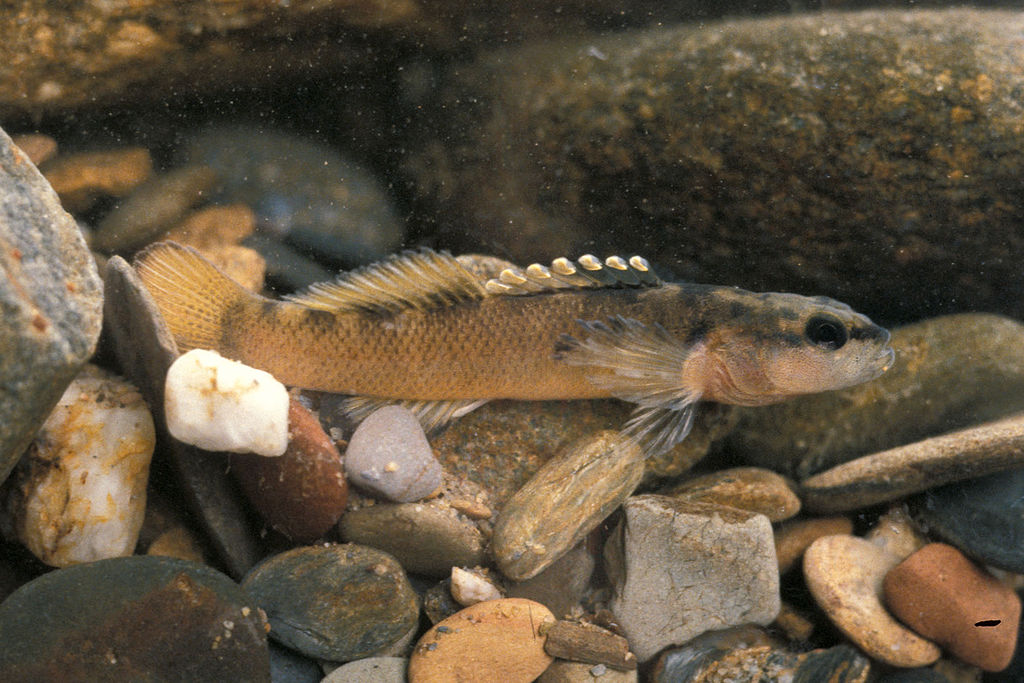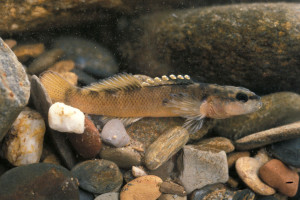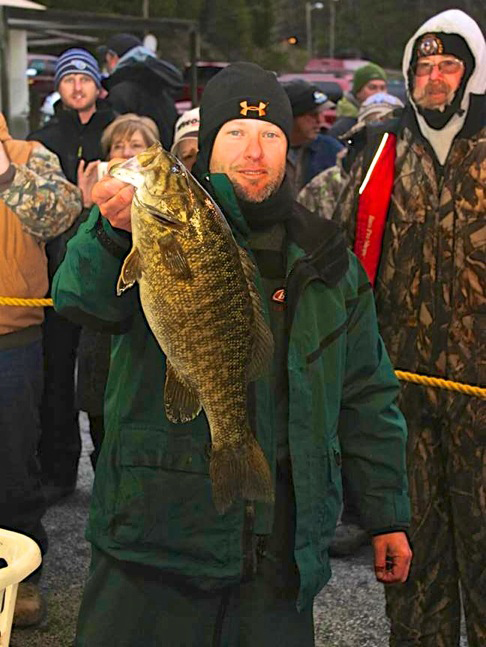
By CHRIS ERWIN
In an earlier column we reported on the hold-up to raising Lake Cumberland because of an endangered fish. Duskytail Darters were recently found in the headwaters region of the lake, which were exposed during the drawdown, confirming the presence of this federally protected fish. This discovery was the result of a stream survey, a required compliance commitment made by the U.S. Army Corps of Engineers as part of the Record of Decision for the Wolf Creek Dam/Lake Cumberland Environmental Impact Statement related to the emergency drawdown of the lake.
In a statement last week Gov. Steve Beshear said, “I am pleased that the Corps and U.S. Fish and Wildlife Service have expeditiously resolved the issues facing endangered habitat within the water, and that the lake will be open at conventional levels in time for the summer season. This is wonderful news for Lake Cumberland residents and everyone who enjoys fishing and boating at this first-rate Kentucky tourism destination.”
Gov. Beshear contacted the Nashville USACE office in February to express his concern about the impact of delaying the raising of the lake level, particularly for a region that depends heavily on fishing and outdoor recreation tourism.

“This is great news,” said Bob Stewart, secretary of the Tourism, Arts and Heritage Cabinet. “This will have an immediate and significant impact on this year’s tourism season on and around one of Kentucky’s most popular recreational destinations.”
USACE worked closely with the U.S. Fish and Wildlife Service to expedite the Biological Opinion, which was necessary for the Corps to return the lake to its normal recreation season level of 723 feet. The Corps and the Service will implement three conservation measures to protect the duskytail darter, they said.
“As a result of the Biological Opinion and Brig. Gen. Burcham’s decision to increase the pool elevation, we will begin immediately to capture water in Lake Cumberland,” said Lt. Col. John Hudson, Nashville District commander, in an opinion statement issued by the USFWL this week. “Reaching our target peak elevation of 723 feet this year will be dependent on the amount and timing of rainfall,” he said.
The completion of the Biological Opinion was the final piece of information required to make a decision about the Lake Cumberland pool level. The dam safety remedial measures had previously been reviewed by Corps dam safety professionals, who recommended returning the lake to normal operations for 2014.
The Corps discovered the duskytail darter, listed as endangered under the Endangered Species Act, during a required biological survey associated with the dam safety project at Wolf Creek Dam. Duskytail darters were found at seven new locations in the headwaters portion of the Big South Fork embayment in Lake Cumberland in stream habitat that was exposed during the drawdown.
“Collectively, these measures will help minimize impacts to the species and ensure the duskytail darter’s future survival in the Big South Fork,” said Lee Andrews, Field Office supervisor for the U.S. Fish and Wildlife Service in Kentucky. “We understand the recreational and economic importance of Lake Cumberland in southeast Kentucky and have worked closely with the Corps to expedite this review. This is another good example of how our implementation of the Endangered Species Act can balance economic and other human needs with the needs of our rarest species.”
The darters will be maintained and propagated at Wolf Creek National Fish Hatchery in Russell County as part of the recovery effort and will, over time, be used in reintroduction or population augmentation efforts. Any reintroduction effort will require additional coordination with participating agencies.
The mission of the U.S. Fish and Wildlife Service is working with others to conserve, protect, and enhance fish, wildlife, plants, and their habitats for the continuing benefit of the American people.




Be the first to comment